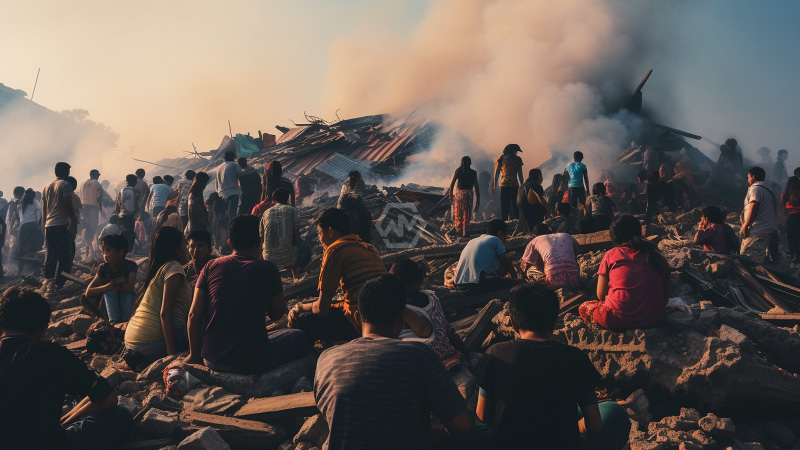- Israeli citizens protest in Tel Aviv, calling for an end to the Gaza war and the siege.
- Starvation deaths rise sharply as humanitarian access remains heavily restricted.
- Australian Labor base demands sanctions and arms embargo against Israel.
In a rare display of cross-community outrage, demonstrators in Tel Aviv carried flour sacks and portraits of malnourished Gazan children, urging the Israeli government to end its military campaign and the siege on Gaza.
Meanwhile, frustration is mounting within Australia’s ruling Labor Party, where 78 local branches have passed motions urging the Albanese government to impose sanctions on Israel and implement a two-way arms embargo.
Gaza’s Hunger Crisis Fuels Global Backlash and Political Pressure
Inside Gaza, desperation is turning into tragedy. At least 101 civilians, including 80 children, have reportedly died of hunger in recent weeks. With many hospitals unable to function and medical staff themselves collapsing from hunger, the region is seeing a near-total collapse of its healthcare system. UN officials describe the situation as a “horror show,” warning that without sustained aid, the worst is yet to come.
Despite growing criticism, Israel maintains that it facilitates aid and blames United Nations agencies for failing to prevent aid theft by militant groups like Hamas. The Israeli Defense Forces also recently acknowledged the accidental shelling of Gaza’s only Catholic church, which killed three people, adding further scrutiny to its operations in civilian areas. U.S. pressure has led to a formal apology and limited aid entry, but humanitarian corridors remain severely restricted.
In Canberra, Foreign Minister Penny Wong defended Australia’s record of humanitarian assistance but stopped short of endorsing sanctions. She reiterated that Australia has not supplied arms to Israel in years and insisted that all military exports are non-lethal. However, pro-Palestine advocates argue that Australia remains indirectly complicit via its role in global supply chains, particularly for components of F-35 jets used by the Israeli military.
Back in Israel, the protests reflect a shift in public opinion. Once firmly unified around national security, many Israelis now question the ethics and long-term strategy of continued warfare in Gaza. The sight of starving children and failing hospitals has sparked moral outrage, even among those who previously supported military action. As public dissent grows, pressure is mounting on the Netanyahu government to alter its course.
As starvation and suffering deepen in Gaza, calls for decisive international action are gaining momentum. From Tel Aviv to Canberra, citizens and lawmakers are demanding not just words—but meaningful change.
“There comes a time when silence is betrayal.” — Martin Luther King Jr.



